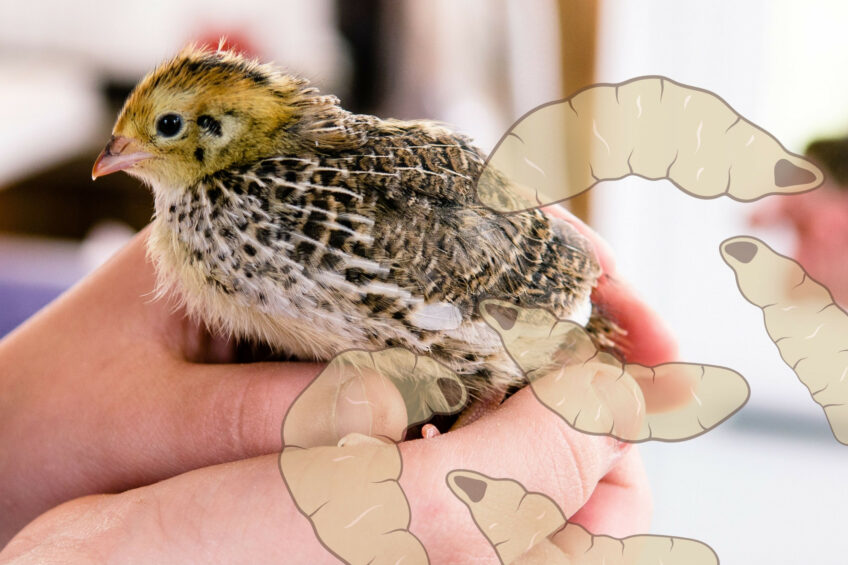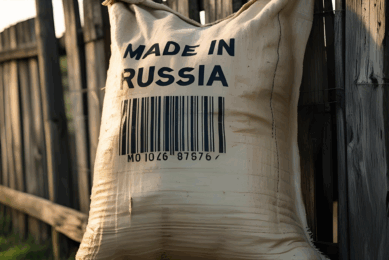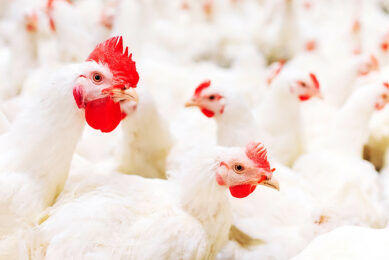A study shows high potential of black soldier fly in feeding quails

A group of Russian scientists from the Kazan Academy of Veterinary Medicine has called on the feed industry to closely examine the potential of replacing meat-and-bone meal and imported feed additives with black soldier fly larvae.
The researchers conducted an experiment with 3 groups of laying quails with 21 birds in each group. The first group received regular feed, the second the same feed with the addition of 3% natural dried larvae, and the third received feed with the addition of 7% larvae.
At the end of the 2-month trial, the researchers examined the composition of the eggs using gas chromatography.
Tangible results
The analysis showed that feed supplementation with black soldier fly brings tangible results. For instance, in the eggs of quails that received natural supplements, the content of lysine increased by 17%, methionine by 16%, and tryptophan by 21%.
The content of some fatty acids also rose. For example, the content of linoleic acid increased by 25%, and that of linolenic acid by 250% above the level in the control group.
An aid to the import-replacement campaign
According to researchers, growing black soldier flies for use in the poultry industry is a feasible strategy to lower the industry’s dependence on imports. Currently, Russia imports around 95% of feed additives to meet the domestic demand, primarily from China.
“This environmentally-friendly alternative not only solves the problem of import substitution, but also increases the nutritional value of quail eggs – the content of essential amino acids increased up to 21%,” the scientists said.
A closed production cycle
Growing larvae requires fewer resources than producing meat-and-bone meal, the scientists asserted, adding that insects grow quickly and process organic waste, providing a closed production cycle. This means that the waste produced by the insects can be used as a nutrient source for their growth, creating a self-sustaining system.
The Kazan State Agrarian University emphasised in the statement that it is confident that the technology can also be used for chickens, ducks, and turkeys.
Industry is in limbo
The progress in Russia’s insect industry in recent years remains somewhat sluggish. Although several investors have shared plans to begin commercial production of insects for use in the feed industry, their mass commercial production has not yet started.
At a conference in 2024, Russian deputy prime minister Victoria Abramchenko stated that the scope of insect meal use should be limited to fish feed.
The rationale behind establishing insect meal production in Russia was to keep good trade relations with Europe, Pyotr Kutsenogiy, deputy director for innovation at the Institute of Cytology and Genetics under the Russian Academy of Science, said at that time.
However, the new study was carried out as part of a state assignment from the Russian Ministry of Agriculture, likely indicating that the Russian government is not planning to abandon plans for the development of insect feed completely.











